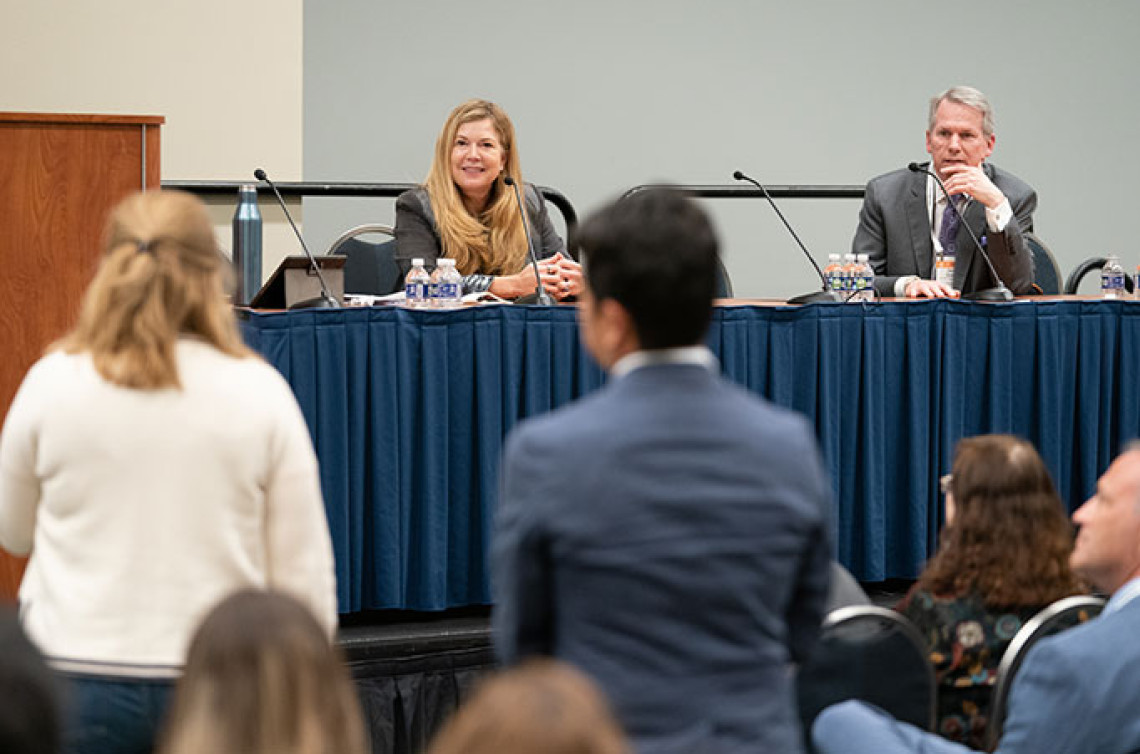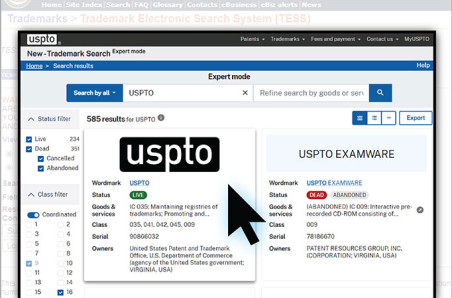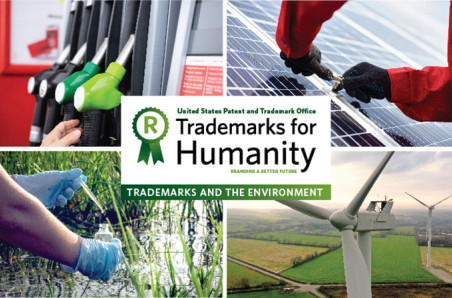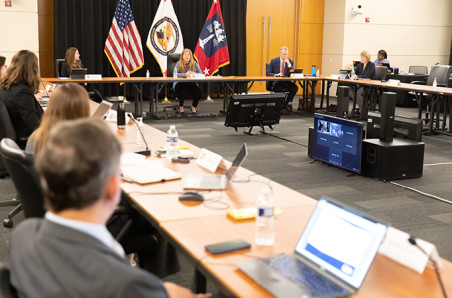
Director Kathi Vidal and Commissioner for Trademarks Dave Gooder speak to stakeholders at the International Trademark Association meeting. (Photo by Jay Premack/USPTO)
How the domicile address requirement advances our trademark anti-fraud efforts
We recently issued an examination guide to clarify the steps examining attorneys must take to evaluate the validity of a trademark applicant’s “domicile” as included in their application. This requirement is also a key part of our comprehensive effort to fight trademark filing fraud. In this blog, we offer a little more about what it is, why it’s so important, and what you can do to help.
First, a little background: The Lanham Act requires us to collect an applicant's domicile information, and we do so via their domicile address. An applicant's domicile address depends on whether they are a natural person or an entity (such as a corporation). For an individual, domicile means the place where the person resides and intends as their principal home. For a juristic person, e.g., a corporation or partnership, domicile means the principal place of business where the senior executives or officers ordinarily direct and control the activities of the business. Prior to 2019, USPTO presumed that the applicant's listed address was the applicant's domicile and we did not refuse customers who provided PO boxes.
In 2019, to better combat the rapidly rising number of trademark scams that were impacting both our customers and us, and to improve accountability for the accuracy of information provided in applications, we issued notice and comment rulemaking and subsequently began requiring trademark applicants and registrants based overseas to be represented by a U.S.-licensed attorney (also known as the "U.S. Counsel Rule"). At that time, due to our need to enforce the U.S. Counsel Rule and the heightened risk of its abuse, we began requiring a street address for the domicile address.
In a world where bots and anyone or anything can file a trademark application, the U.S. Counsel Rule helps us determine whether or not the applicant is indeed a real person who either lives or has authorized representation in the United States. It also helps us know if an applicant needs to appoint a new attorney if they decide to change counsel.
Unfortunately, the U.S. Counsel Rule has not stopped some determined scammers who seek to evade the requirement for domicile. Since 2019, we've issued 258 final orders for sanctions for violations of the U.S. Counsel Rule that terminated 18,789 invalidly filed applications and sanctioned 3,297 registrations. This includes thousands of incidents where foreign applicants have used the same false U.S. address to avoid having to hire a U.S.-licensed attorney, or where they appear to have hijacked U.S. attorney credentials and added those credentials without the attorney's awareness or permission to applications in order to create the appearance that they have hired U.S.
counsel.
Our review of suspicious submissions has even revealed U.S.-licensed attorneys cooperating with foreign filing mills who are filing applications that violate USPTO Rules of Practice, including the rules on signatures and certifications, and the Rules of Professional Conduct. A domicile address is crucial to combatting these scams.
Importantly, if an individual feels like their personal safety is at risk if the domicile address appeared in publicly viewable fields, we provide them the option to redact the domicile address by filing a Petition to the Director. Additionally, we are committing new resources and teams to strengthen and uphold the integrity of our IT systems.
The significant and dangerous problems posed by trademark scams and application fraud should serve as a clarion call to our entire trademark community. That's why we ask for all those in the community to consider ways they can support these efforts. We welcome all ideas at TMScams@uspto.gov, and we look forward to even more opportunities to hear from you on this and other important anti-fraud initiatives. You can review the recently-issued examination guide on our website.
We are humbled and honored to serve this incredible community that is driving our nation's economy through the development of new brands and the business growth that is fueled by strong trademarks. We are grateful for your support.
Engage with the Director and join the conversation on our social media channels.






